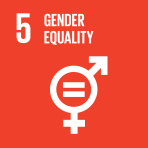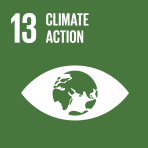Abstract
Development discourse has long acknowledged the disproportionate impact of climate change and its implications for women and other marginalized social groups and has called for gender-responsive and inclusive climate action in international, national and local arenas. However, some countries are still pursuing development trajectories that fall short on gender sensitivity and social inclusion, worsening the impacts on women and marginalized groups while hindering resilience-building efforts. Given Sri Lanka’s heightened climate vulnerability and the exacerbated climate risks on women and other socially excluded demographics, and responding to the call for action in the United Nations Framework Convention on Climate Change (UNFCCC) process and the 2030 Agenda for Sustainable Development, this brief examines the level to which Sri Lanka’s development and climate policies and strategies integrate a gender and social inclusion approach in comparison to regional peers. Drawing on this work, this brief then provides recommendations to improve the climate policy landscape of Sri Lanka, including the gender-responsiveness of such work, to inform the country’s ongoing National Climate Change Policy revisions.
- 14 Apr 2023



